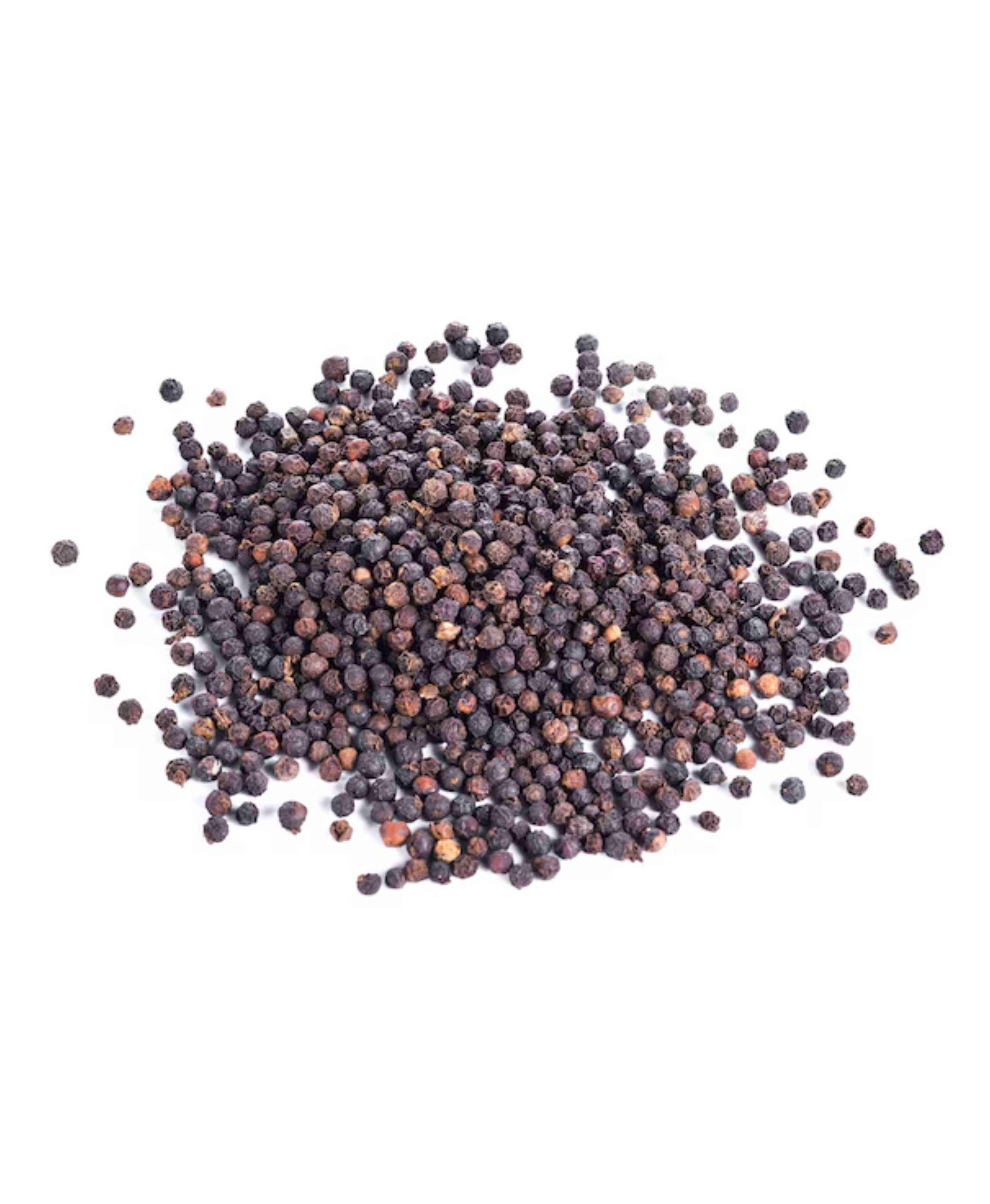Black pepper (Piper nigrum) is one of the most widely used spices globally, known for its sharp, pungent flavor and versatility in both cooking and traditional medicine. Derived from the dried fruit of the pepper plant, black peppercorns are harvested when the fruit is still green and unripe, then dried to develop their characteristic black skin and robust flavor. Once dried, the peppercorns are often ground into a fine powder, used to season a variety of dishes, including meats, vegetables, soups, sauces, and salads. In addition to its culinary use, whole black peppercorns are frequently used in spice blends and marinades.
Black pepper is not only valued for its flavor but also for its numerous health benefits. It contains piperine, an active compound known for its antioxidant, anti-inflammatory, and digestive properties. Piperine enhances the bioavailability of other nutrients and compounds, like curcumin from turmeric, making them more effective in the body. Black pepper is also linked to improving digestion by stimulating the production of digestive enzymes, reducing bloating, and promoting the absorption of nutrients. It has been traditionally used to treat colds, coughs, and respiratory issues due to its warming and soothing effects. Additionally, black pepper may support weight management and metabolism by boosting thermogenesis. Its unique flavor and health benefits have made black pepper a staple in kitchens and medicine cabinets worldwide.
